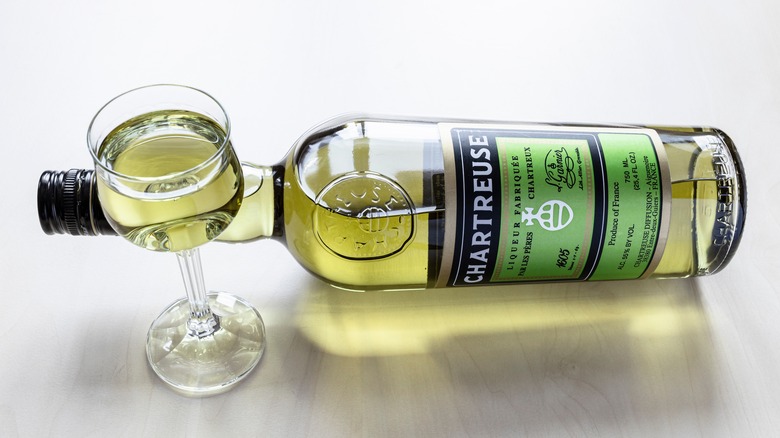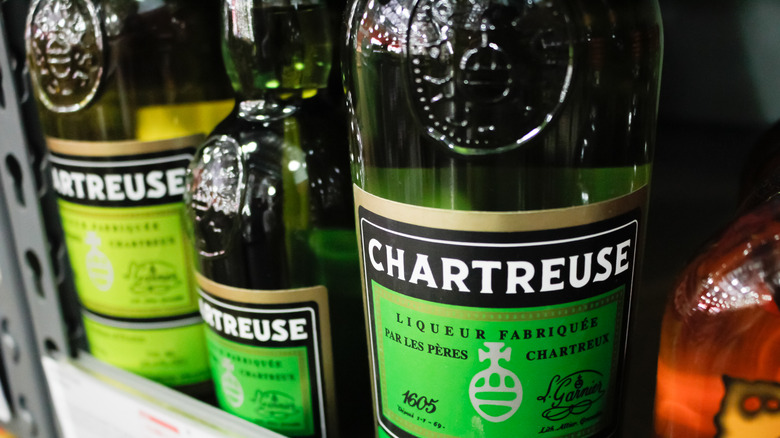Why Your Favorite Bar Is Out Of Chartreuse
The spirits business is much like any other — companies chase increases in sales, and even steady numbers can be regarded as a loss in the boardroom. Liquor brands are always looking for ways to create, define, and dominate their niche, leaning heavily on marketing, which these days includes traditional promotion as well as partnerships with influencers to differentiate their products from the other bourbons, vodkas, or gins on back bars and retailer shelves. And that's why Chartreuse is such an anomaly. Not only does the U.S. importer not spend a fortune promoting the brand, but it even restricts sales for retailers that would buy more if they could.
Chartreuse, the herbal green and yellow liqueurs that feature in cocktails like The Last Word, may be in high demand in bars that specialize in innovative craft cocktails, but the Carthusian monks who make the beverage in the French Alps aren't worried about sales projections or lobbying their wholesalers to pay more attention to the brand. In fact, in January of this year, the French company that distributes Chartreuse published a letter in which it announced that the reclusive Carthusian order that produces the spirit, according to the Wall Street Journal, will limit annual production to roughly 1.2 million bottles, decreasing their 2021 figures by about 10%.
Why is Chartreuse production being limited?
The letter announcing the production cap on Chartreuse gave two reasons for the monks' decision. First, limiting production will allow the order members to focus on their purpose of living a life mainly devoted to solitude and prayer. As Tim Master, senior spirits director for the U.S. importer of Chartreuse, told the WSJ, "The monks are not in this to drive Mercedes and live a lavish life." The monastic order's decision also reflects their concern for the environment. Harvesting increasingly large quantities of the 130 botanical ingredients that flavor the mysterious spirit could have detrimental effects on the local landscape where the monks live and work.
And the decision to cap Chartreuse production leaves its French and U.S. distributors in a bit of a pickle. Demand for the spirit has increased, and there's simply not enough to go around. Distributors are forced to allocate Chartreuse, focusing on high-profile restaurants and bars, and some retailers have even resorted to limiting sales to a single bottle per customer. It's a singular situation for a singular beverage; the flavor profile of Chartreuse is utterly unique, its recipe a closely guarded secret, which makes the hard-to-acquire spirit all the more alluring.

